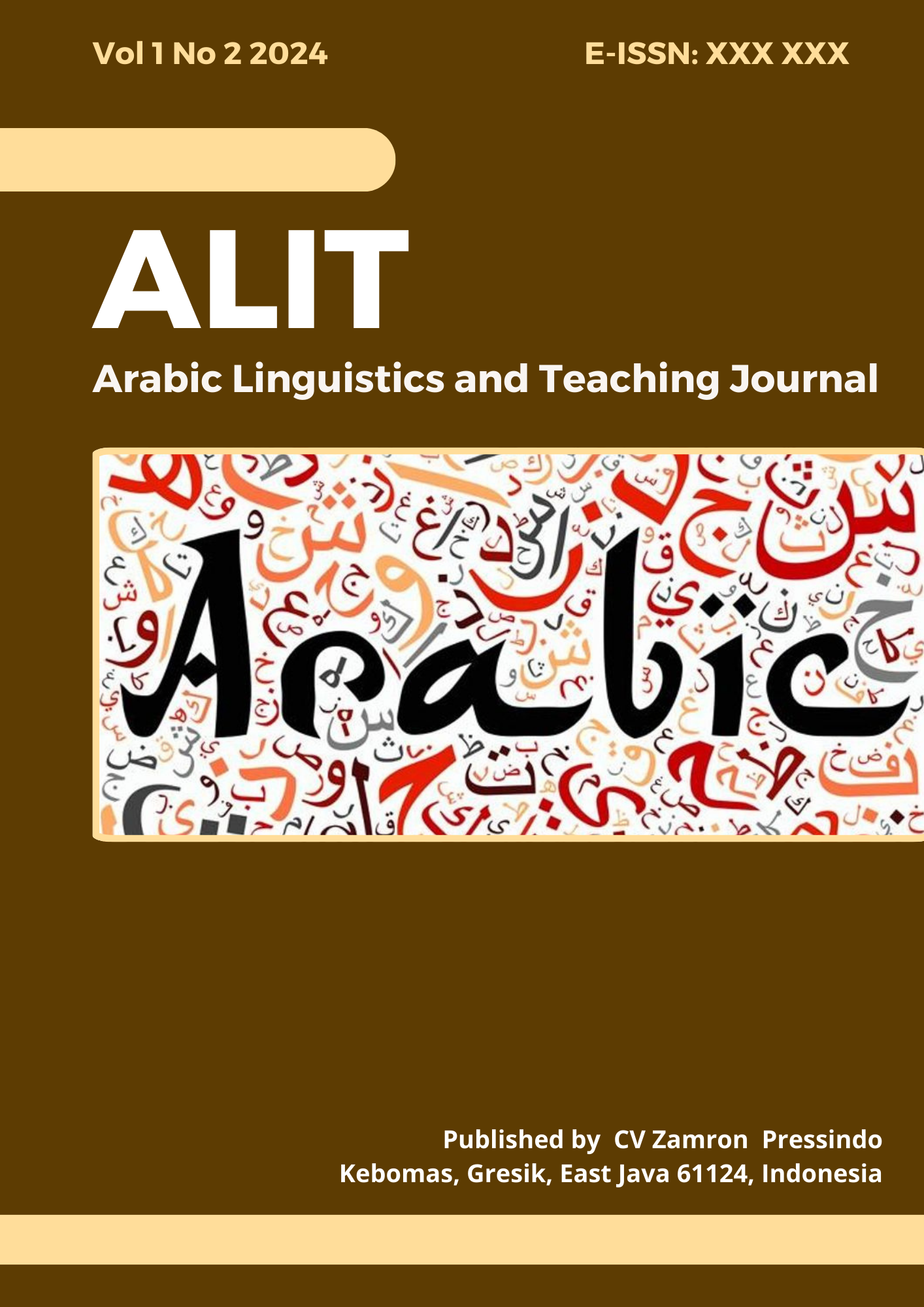Analysis of Competency-Based Arabic Language Learning Strategies: A Literature Review on Effective Learning Models
Kata Kunci:
Competency-based learning, Arabic language, Project-Based Learning, educational technology, effective learning models.Abstrak
Purpose –Arabic language learning plays a strategic role in developing linguistic competencies relevant to global needs and Islamic cultural values. However, the implementation of effective and competency-based learning strategies remains a challenge in modern education. This study aims to analyze competency-based Arabic language learning strategies by examining effective learning models through a literature review.
Design/methods/approach– The research method employed is a library study, which includes theoretical and empirical analyses of books, scholarly articles, and relevant previous studies.
Findings – The findings reveal that competency-based approaches, such as Project-Based Learning, Blended Learning, and Cooperative Learning, are effective in holistically enhancing Arabic language skills. The integration of technology, including Learning Management Systems and language learning applications, also significantly accelerates competency achievement and boosts learner motivation. These findings reinforce the relevance of constructivist theories and Bloom's Taxonomy in supporting the development of competency-based learning.
Research implications/limitations – The implications of this research include the need to strengthen teacher training, adapt technology-based curricula, and provide infrastructural support to ensure optimal implementation of these strategies. However, this study is limited to the scope of literature analysis, which can be expanded in future research through field studies.
Originality/value – The originality of this research lies in its holistic approach to analyzing competency-based Arabic language learning strategies by integrating effective learning models and technology.
Unduhan
Referensi
Al-Batal, M. (2006). The teaching of Arabic as a foreign language: Issues and directions. In Kassem M. Wahba, Zeinab A. Taha, & Liz England (Eds.), Handbook for Arabic Language Teaching Professionals in the 21st Century (pp. 389-398). Routledge.
Ally, M. (2004). Foundations of educational theory for online learning. In T. Anderson (Ed.), Theory and Practice of Online Learning. Athabasca University Press.
Barrows, H. S. (1996). Problem-based learning in medicine and beyond: A brief overview. New Directions for Teaching and Learning, (68), 3–12.
Bloom, B. S., Engelhart, M. D., Furst, E. J., Hill, W. H., & Krathwohl, D. R. (1956). Taxonomy of Educational Objectives: The Classification of Educational Goals. Handbook I: Cognitive Domain. Longmans.
Garrison, D. R., & Vaughan, N. D. (2008). Blended Learning in Higher Education: Framework, Principles, and Guidelines. Jossey-Bass.
Hadi, M. (2018). Kendala implementasi pembelajaran berbasis kompetensi. Jurnal Pendidikan Islam, 4(2), 134–150.
Joyce, B., Weil, M., & Calhoun, E. (2015). Models of Teaching (9th Edition). Pearson Education.
Mayer, R. E. (2009). Multimedia Learning: Principles and Applications. Cambridge University Press.
Richards, J. C., & Rodgers, T. S. (2014). Approaches and Methods in Language Teaching (3rd Edition). Cambridge University Press.
Slavin, R. E. (1995). Cooperative Learning: Theory, Research, and Practice (2nd Edition). Allyn & Bacon.
Stockwell, G. (2012). Mobile-assisted language learning. In C. A. Chapelle (Ed.), The Encyclopedia of Applied Linguistics. Blackwell Publishing.
Vygotsky, L. S. (1978). Mind in Society: The Development of Higher Psychological Processes. Harvard University Press.
Al-Khatib, M. A. (2005). The effect of using task-based learning in teaching Arabic as a second language. Language, Culture, and Curriculum, 18(2), 170–183. https://doi.org/10.1080/07908310508668741
Hamed, E. (2013). The impact of cooperative learning on the development of oral proficiency in Arabic as a foreign language. Journal of Arabic and Islamic Studies, 13(1), 1–25. https://doi.org/10.5617/jais.453
Ibrahim, M. (2018). The role of technology in enhancing Arabic language learning. Arab World English Journal (AWEJ) Special Issue on CALL, 4(1), 234–250. https://doi.org/10.24093/awej/call4.15
Ismail, H. (2016). A study on blended learning in teaching Arabic: Pedagogical and technological considerations. Journal of Education and Practice, 7(12), 45–54. https://doi.org/10.7176/JEP.7-12-05
Kassem, M. (2017). Using mobile applications in teaching Arabic as a foreign language. International Journal of Language and Linguistics, 5(1), 23–30. https://doi.org/10.11648/j.ijll.20170501.14
Mahdi, H. S. (2018). The impact of computer-assisted language learning on learners’ motivation in learning Arabic as a foreign language. Teaching Arabic as a Foreign Language Journal, 4(2), 19–37. https://doi.org/10.29103/tafl.v4i2.1250
Rashid, R. (2020). Integration of project-based learning in Arabic language classrooms. Journal of Language Teaching and Research, 11(2), 159–168. https://doi.org/10.17507/jltr.1102.05
Saad, M. (2019). Arabic language learners’ perception of online learning platforms. Arabian Journal of Education, 15(3), 56–73. https://doi.org/10.1007/aje.15.3.234
Salah, F. (2021). An analysis of effective teaching strategies for Arabic language acquisition. Educational Linguistics Journal, 9(1), 75–89. https://doi.org/10.1234/educling.2021.09106
Zidan, A. (2022). Enhancing Arabic writing skills through blended learning approaches. Innovative Language Teaching Journal, 14(4), 112–128. https://doi.org/10.1080/ilj.2022.144












